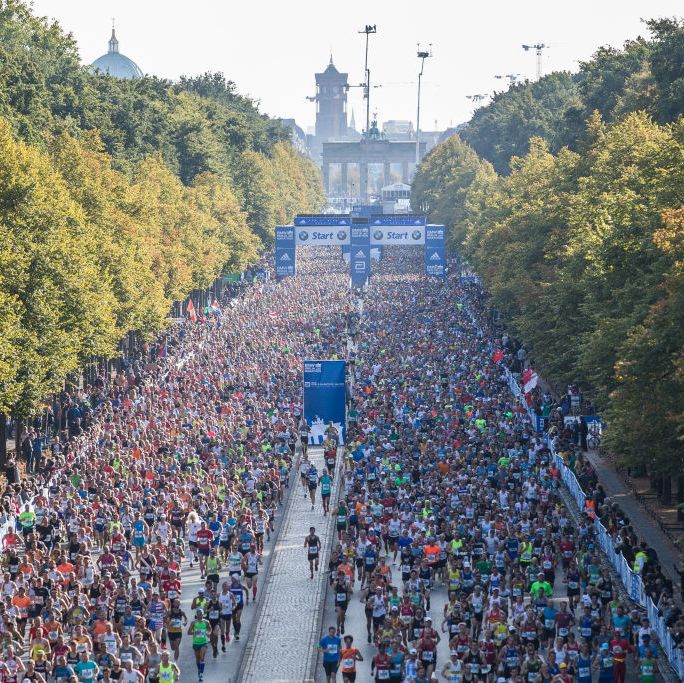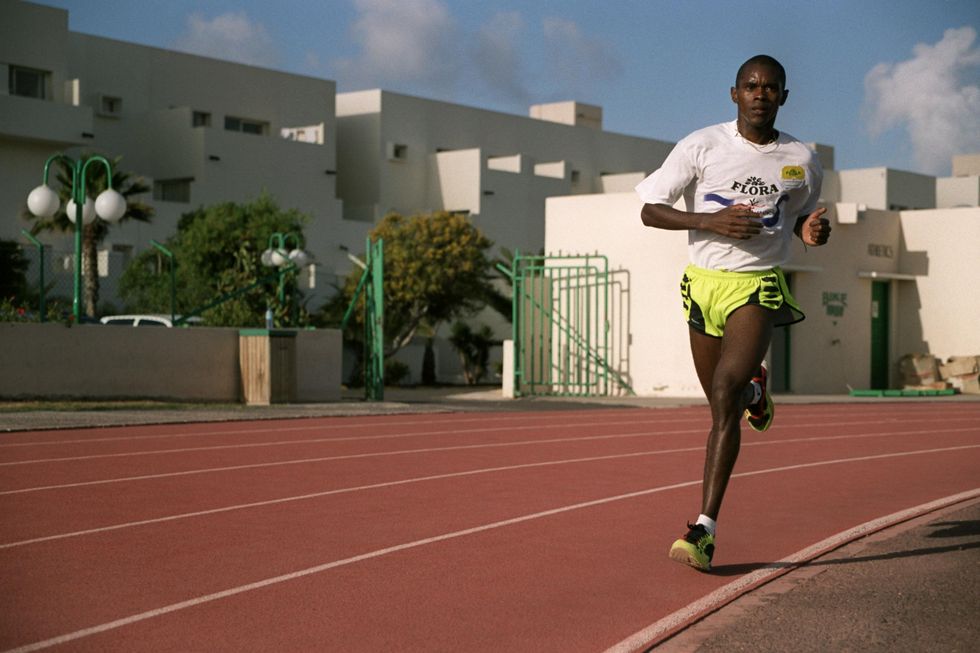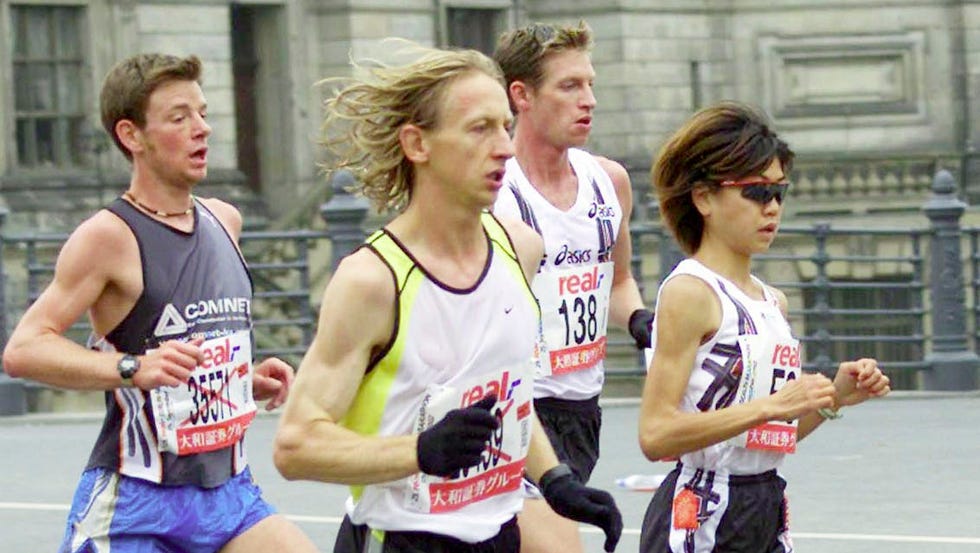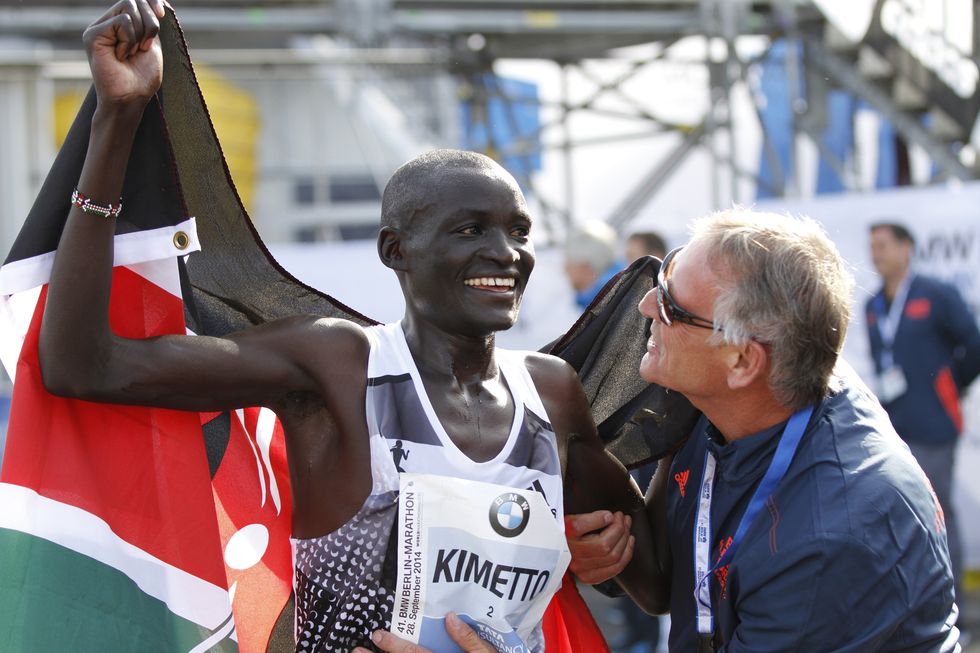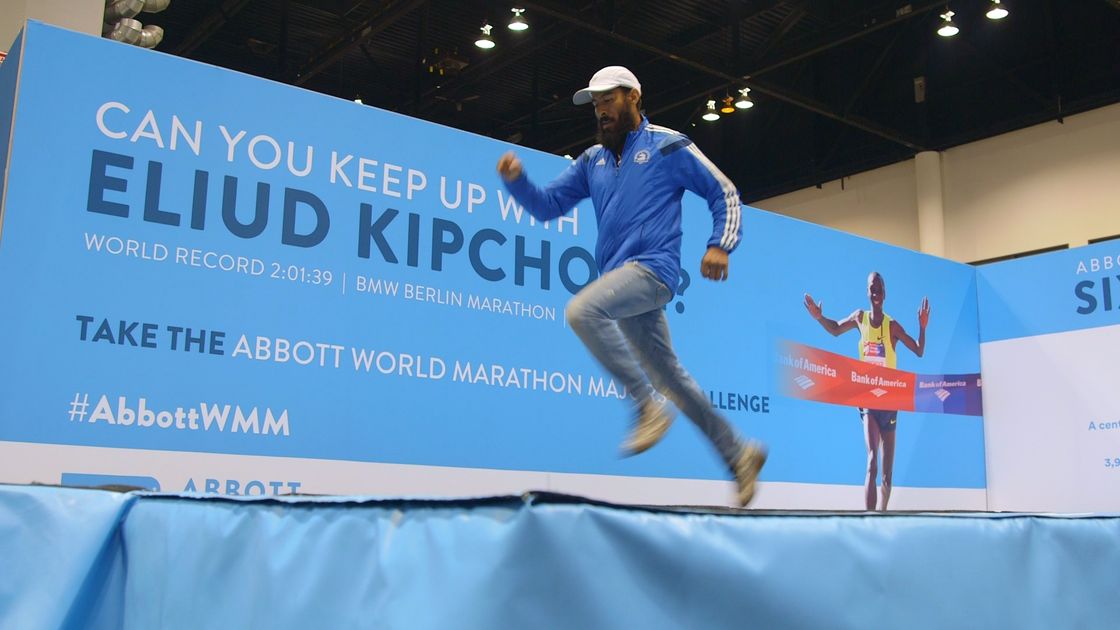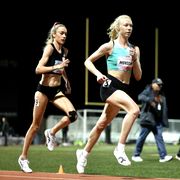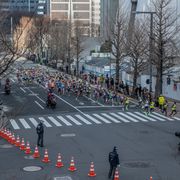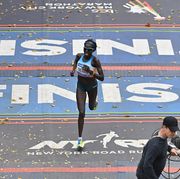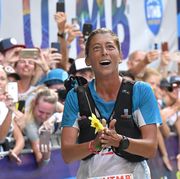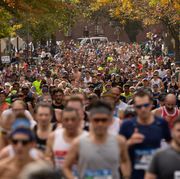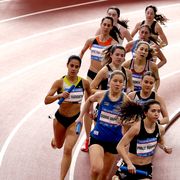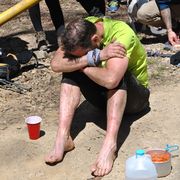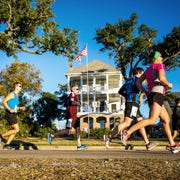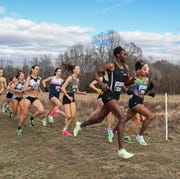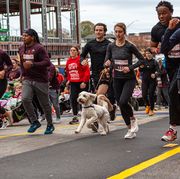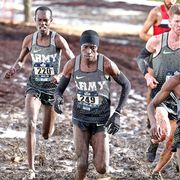Is Berlin the fastest marathon in the world? It certainly seems so, as 11 world records on one course is an unmatched credential.
In 2018, Eliud Kipchoge of Kenya won Berlin in a blistering time of 2:01:39, a new world record by 1 minute 18 seconds. The following year, Kenenisa Bekele (Ethiopia) nearly broke Kipchoge’s record, clocking a 2:01:41 marathon, the second fastest ever run.
Will the Berlin Marathon return to its record-breaking ways this Sunday, September 25?
Berlin has had a lock on the men’s world record since 2003, as well as hosting three break-throughs by women since 1977. Why is this such a great spot for fast times? Cool conditions, flat well-maintained roads, and carefully selected elite fields are the Berlin formula. Add in a phalanx of well-drilled pace-makers who protect and guide each aspiring record-breaker with Germanic efficiency, and you have many elements for success.
The race was founded in 1974 by a Berlin baker, Horst Milde, who combined his passion for running with a family bread and cake business that had flourished just west of the Brandenburg Gate for 300 years. His first marathon had 244 finishers, only 10 of them were women. It was won in a modest 2:44:53 on the men’s side, and 3:22:01 for the women.
Milde patiently kneaded the race like dough until it rose to become this year’s gourmet mega-dollar global-audience marathon with 45,000 sought-after starters. With Milde still a watchful presence, the race remains under the auspices of his Charlottenburg sports club, with his non-baker son Mark Milde as race director.
→ Join Runner’s World+ for all the latest running and health news! 🏃🏾♀️🏃🏻♂️
When Germany achieved reunification in October 1990 after 45 years of division and military occupation, the Berlin Marathon went through the previous Eastern Zone for the first time and gained a world profile as symbol of the new sense of free and open access that swept Europe.
Here, we’re looking into the stories behind the course’s 11 world records.
1977
Christa Vahlensieck (West Germany) ran a world record 2:34:47 at Berlin at a time when female runners were beginning to discover the new opportunity of the marathon, building the pressure that led to its inclusion for the 1984 Olympics. Vahlensieck was a protegée of Dr. Ernst Van Aaken, a visionary advocate for the health benefits of exercise and the endurance abilities of women.
For three years the world record had been swapped between Vahlensieck, France’s Chantal Langlacé and USA’s Jacqueline Hansen. When Vahlensieck took back the record on German soil, it was consolation for Van Aaken, who had lost both legs in an automobile accident.
1998
Ronaldo da Costa, a Brazilian, youngest of a poor family of 11, had only rarely competed outside his home country. At the Atlanta Olympics in 1996, he finished a modest 16th in the 10,000 meters. In his first visit to Berlin in 1997, he placed fifth (2:09:07), but the next year he astonishingly improved by three minutes and broke a world record that had stood for 10 years. Da Costa is the only South American, male or female, to hold the world marathon record. He became a national hero.
2001
The world began to look for the first women’s sub-2:20 marathon after Joan Benoit Samuelson slashed the world best mark down to 2:22:43 at Boston in 1983. But the barrier eluded the first generation of great Africans, even Fatuma Roba (Ethiopia), first African woman to win the Olympic marathon in 1996, and Tegla Loroupe (Kenya), first to win a big-city marathon, New York in 1994. Berlin wanted the sub-2:20 notch on its belt, and Loroupe came close there with 2:20:43 in 1999. After almost 20 years, sub-2:20 began to look like the four-minute mile before Roger Bannister.
Then Berlin lured the Japanese Olympic champion (Sydney 2000), Naoko Takahashi. Trained on super-high mileage, Takahashi scorched the flat Berlin streets to give herself lasting fame with 2:19:46. It was more than a sporting breakthrough. In Japan’s long but patriarchal culture, Takahashi became the first popular national female hero, even featuring as the lead character in a “manga” comic-book series, with a multi-million readership.
2003-2018
Three dramatically marginal breakthroughs over 15 years make Berlin the location of choice to break each barrier. Paul Tergat (Kenya) was the first man under 2:05, with 2:04:55 in 2003. Haile Gebrselassie (Ethiopia) cut it even closer when he took the world mark under 2:04, in 2008, with 2:03:59. And when Dennis Kimetto (Kenya) went sub-2:03 in 2014, again at Berlin, it was by only three seconds, once more ensuring full impact in the finish-line photos. At Berlin, those always show the clock.
At the 2018 Berlin Marathon, Kipchoge executed a nearly perfect race, even though he was running alone from the halfway point on, when his last pacer stepped off the course. Going solo, Kipchoge maintained his average pace of 4:38 per mile all the way to the final miles of the race, where he kicked in his last 1.36 miles at a shocking pace of 4:30 per mile, the fastest ever recorded at the end of a marathon.
As impressive as Kipchoge’s 2018 performance was, just one year later, Kenenisa Bekele nearly eclipsed Kipchoge’s record with a 2:01:41 winning time.
If the trends in Berlin’s history suggest anything, it’s that breaking world marks is not merely possible here; it is almost compulsory. With Kipchoge and last year’s winner Guye Adola of Ethiopia on the starting line this year, anything is possible.
World Records at Berlin
Men
- 1998: Ronaldo da Costa (Brazil; 2:06:05)
- 2003: Paul Tergat (Kenya; 2:04:55)
- 2007: Haile Gebrselassie (Ethiopia; 2:04:26)
- 2008: Haile Gebrselassie (Ethiopia; 2:03:59)
- 2011: Patrick Makau Musyoki (Kenya; 2:03:38)
- 2013: Wilson Kipsang (Kenya; 2:03:23)
- 2014: Dennis Kimetto (Kenya; 2:02:57)
- 2018: Eliud Kipchoge (Kenya; 2:01:39)
Women
- 1977: Christa Vahlensieck (W. Germany; 2:34:48)
- 1999: Tegla Loroupe (Kenya; 2:20:43)
- 2001: Naoko Takahashi (Japan; 2:19:46)
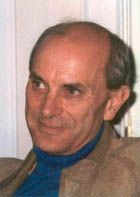
Roger Robinson is a highly-regarded writer and historian and author of seven books on running. His recent Running Throughout Time: the Greatest Running Stories Ever Told has been acclaimed as one of the best ever published. Roger was a senior writer for Running Times and is a frequent Runner’s World contributor, admired for his insightful obituaries. A lifetime elite runner, he represented England and New Zealand at the world level, set age-group marathon records in Boston and New York, and now runs top 80-plus times on two knee replacements. He is Emeritus Professor of English at Victoria University of Wellington, New Zealand, and is married to women’s running pioneer Kathrine Switzer.
